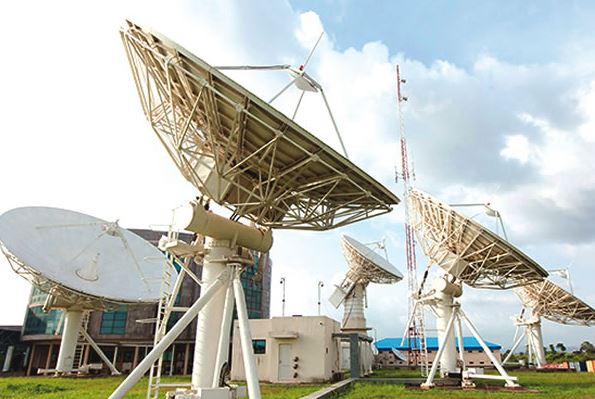NIGCOMSAT: FG receives tips to unlock N8billion satellite revenue

•Urged to tilt broadband policy towards local content protection
•Enhance services; recalibrate 93% redundant satellite broadband capacity
By Prince Osuagwu, Hi-Tech Editor
Nigeria’s satellite broadband sector could be on the brink of a major breakthrough, if the federal government embraces bold policy reforms and backs its own national satellite provider, NIGCOMSAT.
That was the consensus among top satellite marketers and industry stakeholders who convened in Lagos at the weekend to chart a new course for the underutilized communications giant.
Despite Nigeria’s surging broadband demand, with national penetration jumping from 35 percent in 2023 to 75 percent, NIGCOMSAT’s satellite broadband remains largely untapped.
The company currently operates at just 7% capacity, leaving a staggering 93% idle.
Yet, according to its Managing Director, Mrs. Jane Egerton-Idehen, the company has the infrastructure and ambition to generate N8 billion in revenue within three years.
Call for Strategic Policy Shift
However, industry leaders at the roundtable said one of the major problems hindering NIGCOMSAT’s growth, included the perception that NIGCOMSAT is still a government bureaucracy and not a commercial tech player.
They urged the federal government to mandate all ministries, departments, and agencies, MDAs to source their broadband needs from NIGCOMSAT, arguing that such a move would not only boost the company’s fortunes but also reinforce Nigeria’s local content policy and reduce dependence on foreign providers like Starlink.
They also highlighted the success of Project 774, where NIGCOMSAT delivered broadband to 45 local government secretariats across eight states in just two months; feat terrestrial fibre providers couldn’t match.
Building a commercial future
Egerton-Idehen emphasised that NIGCOMSAT is not designed to compete directly with consumer ISPs, but rather aims to serve as a backbone provider, enabling partners and resellers to deliver services nationwide.
She cited Egypt’s NALSAT, which earns $150 million annually, and Nigeria LNG as examples of government-owned entities that are both profitable and impactful making NIGCOMSAT’s N8 billion target a modest one.
One recurring theme during breakout sessions was the perception of NIGCOMSAT as a bureaucratic agency rather than a dynamic commercial player. This image, stakeholders warned, has hindered adoption and allowed competitors like Starlink to dominate key market segments and to change the narrative, they called for rebranding of NIGCOMSAT as a commercial tech enabler, stronger public-private partnerships and clear policy frameworks that prioritize local satellite solutions.
Rallying call to partners
To create a new chapter for NIGCOMSAT to spearhead Nigeria’s digital sovereignty, Egerton-Idehen made a rallying call to partners, saying: “This is the next chapter for NIGCOMSAT. We want to build it with you, our partners because we cannot do it alone.”
If Nigeria seizes this moment, it could redefine its digital infrastructure, empower underserved communities, and position NIGCOMSAT as a regional leader in satellite broadband.
The post NIGCOMSAT: FG receives tips to unlock N8billion satellite revenue appeared first on Vanguard News.







